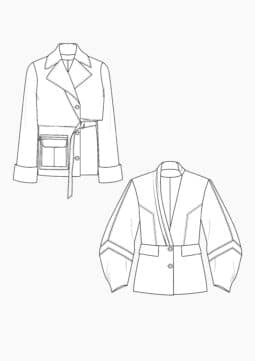Sewing Bellow Pocket
Deutsch
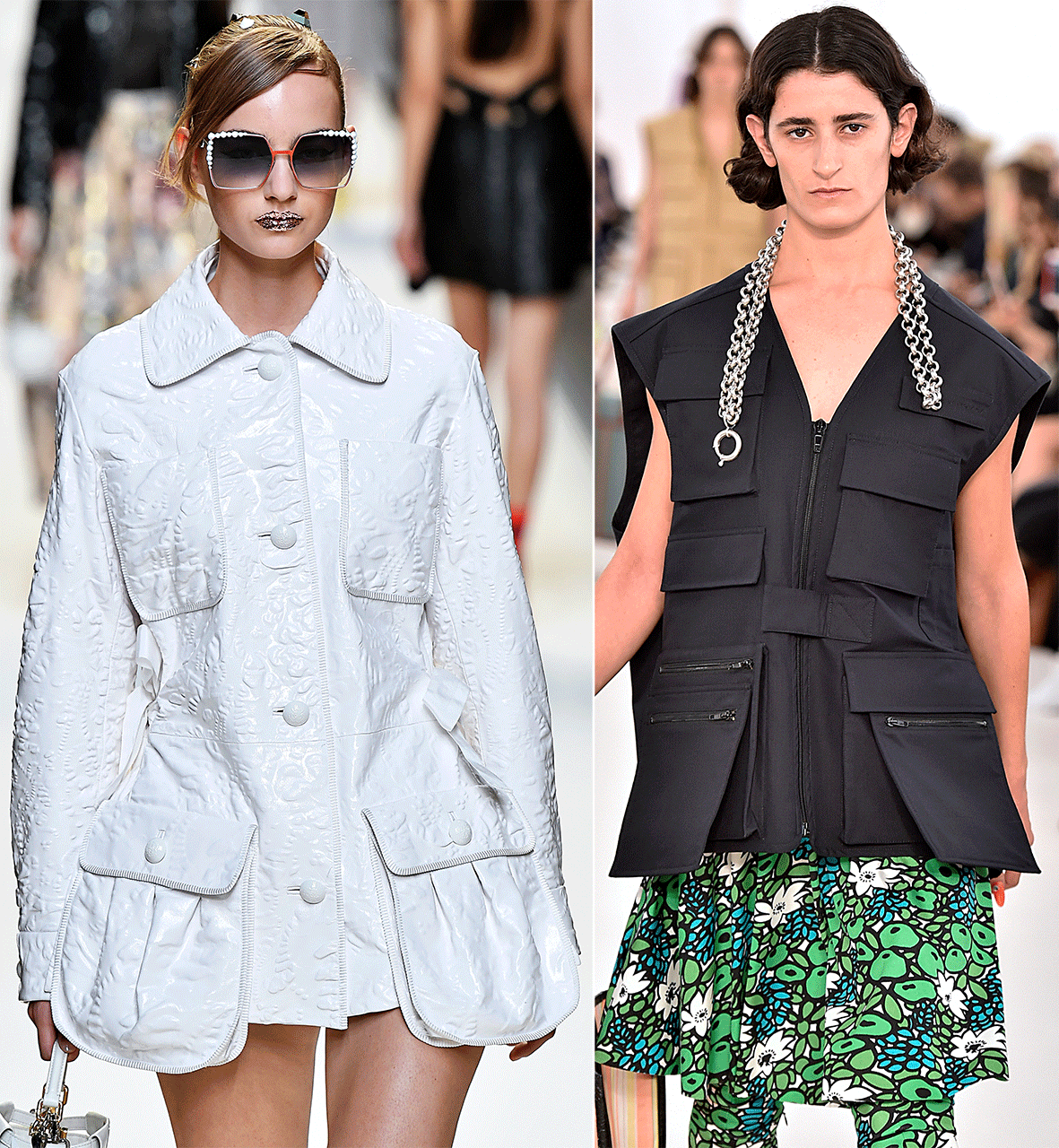
The patched bellow pocket can appear elegant or sporty, there are no limits to the design. Whether simple with decorative seams, different quilting, sometimes round or squared, with button or zipper, with bar, flap, panels, placket or pleats, wherever it is attached, it enriches the hole look. Interesting is the bellows pocket in the different variations, for example as a cargo pocket with box pleat or as a voluminous sack pocket. Whether on trousers, on a dress, as a chest pocket on a jacket or as an additional pocket on a handbag: it can be sewn on almost anywhere. This decorative pocket can be sewn with any fabric. If you prefer a voluminous shape, however, you should use a solid fabric or sew in an insert. The bellow pocket is a good piece to learn how to sew, so it often has to be sewn as a test of the acquired qualifications during the training as a tailor, e.g. for intermediate examinations. Helpful tips as well as instructions for constructing the pattern and sewing the pocket can be found in the following article.
Content
Instruction – Classic Bellow Pocket
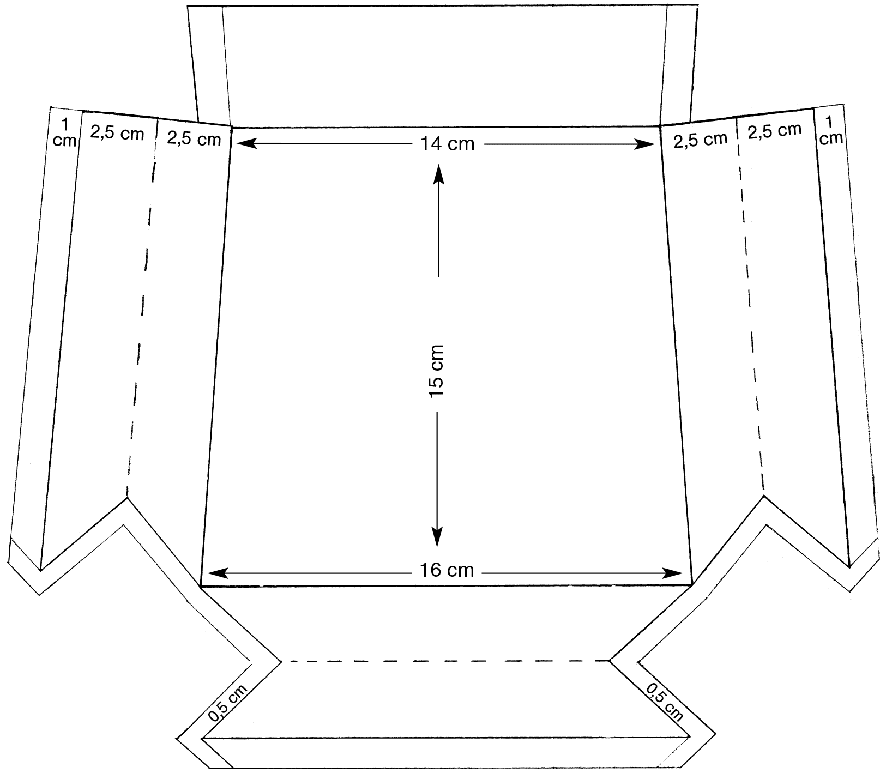
Constructing the pattern
The pocket lies flat on the garment, is very decorative, but time-consuming and only when used does the whole charm come into its own. During the pattern construction the finished corners must fit exactly on each other. This requires a special accuracy in drawing and cutting if the bag shape is widened at the bottom. We charge 1 cm for the seam allowance for stitching on the pocket, and 0.5 cm for the corners. The envelope at the pocket opening can be different. This is reinforced and trimmed with a material-suitable insert.
Sewing instruction
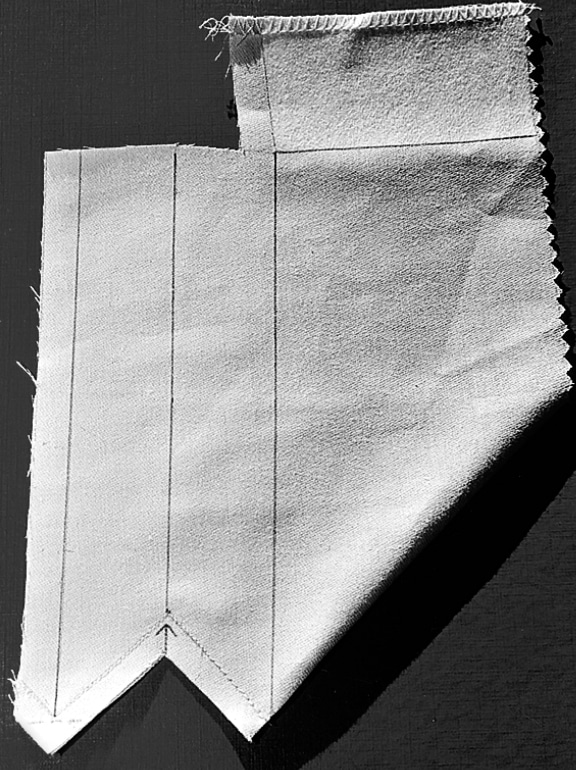
The half pocket part clearly shows the working steps. Cut in inner corners, cut back outer corners.
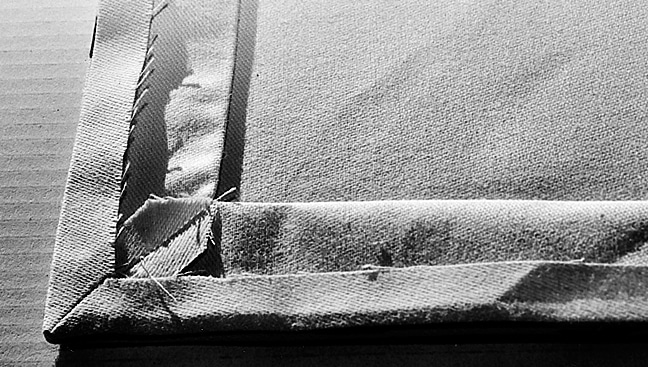
On the bottom side of the pocket you can see the ironed folds, the ironed seam and the ironed seam allowance.
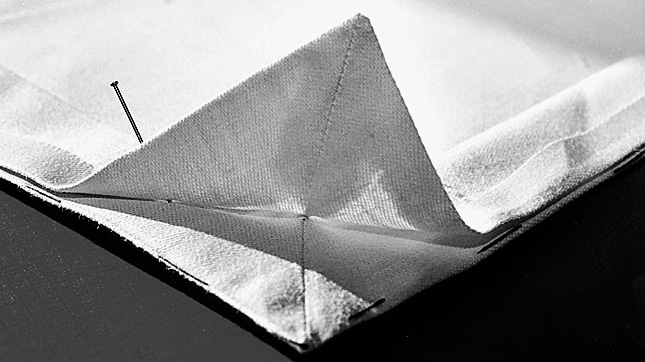
The edges thus achieved must lie exactly on top of each other. The pleat contents are stitched together at the pocket opening.
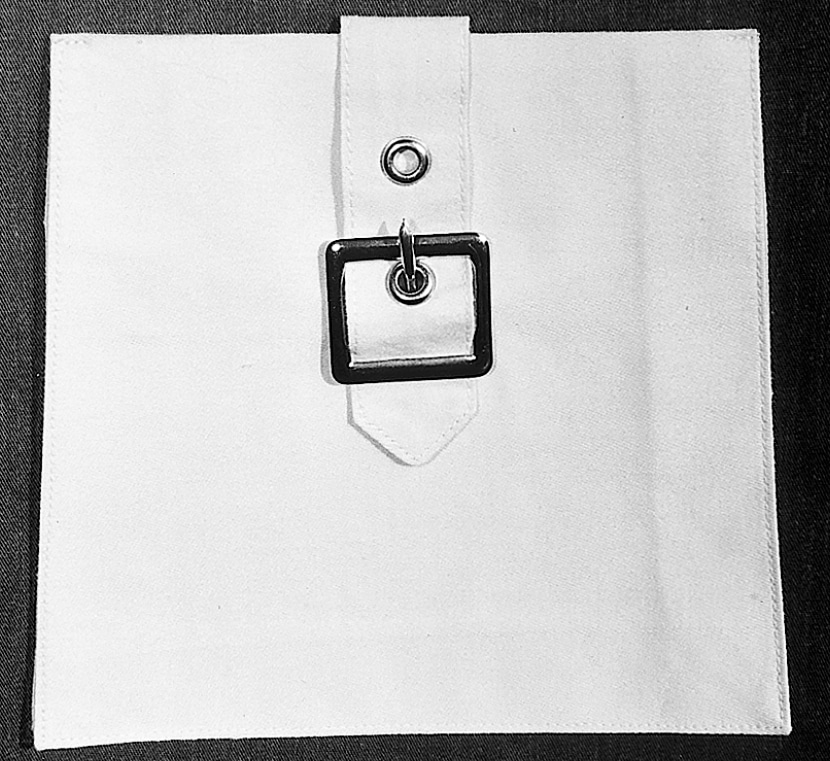
The pocket is easier to sew for if the upper pleat fracture is stitched narrow-edged before processing. The inside cover covers the cut edges of the pleats. This way the pocket can be sewn on cleanly. At the pocket opening, cross-lock 0.5 cm at each side.
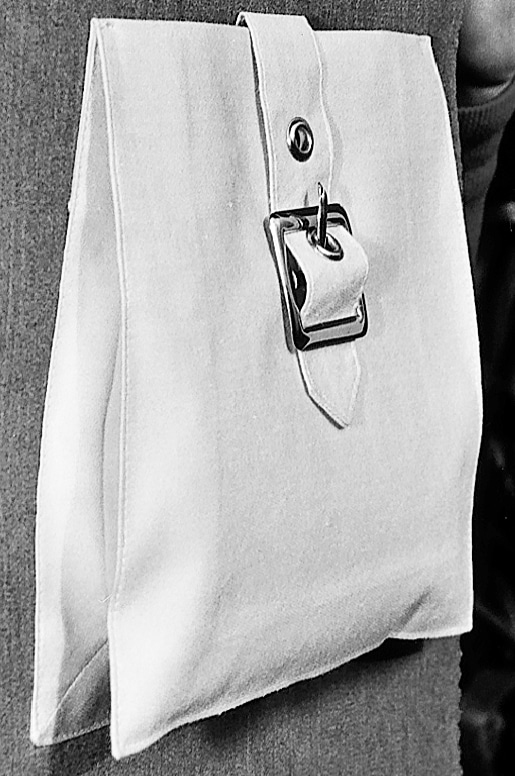
The bag becomes even more attractive with a closable clasp or flap.
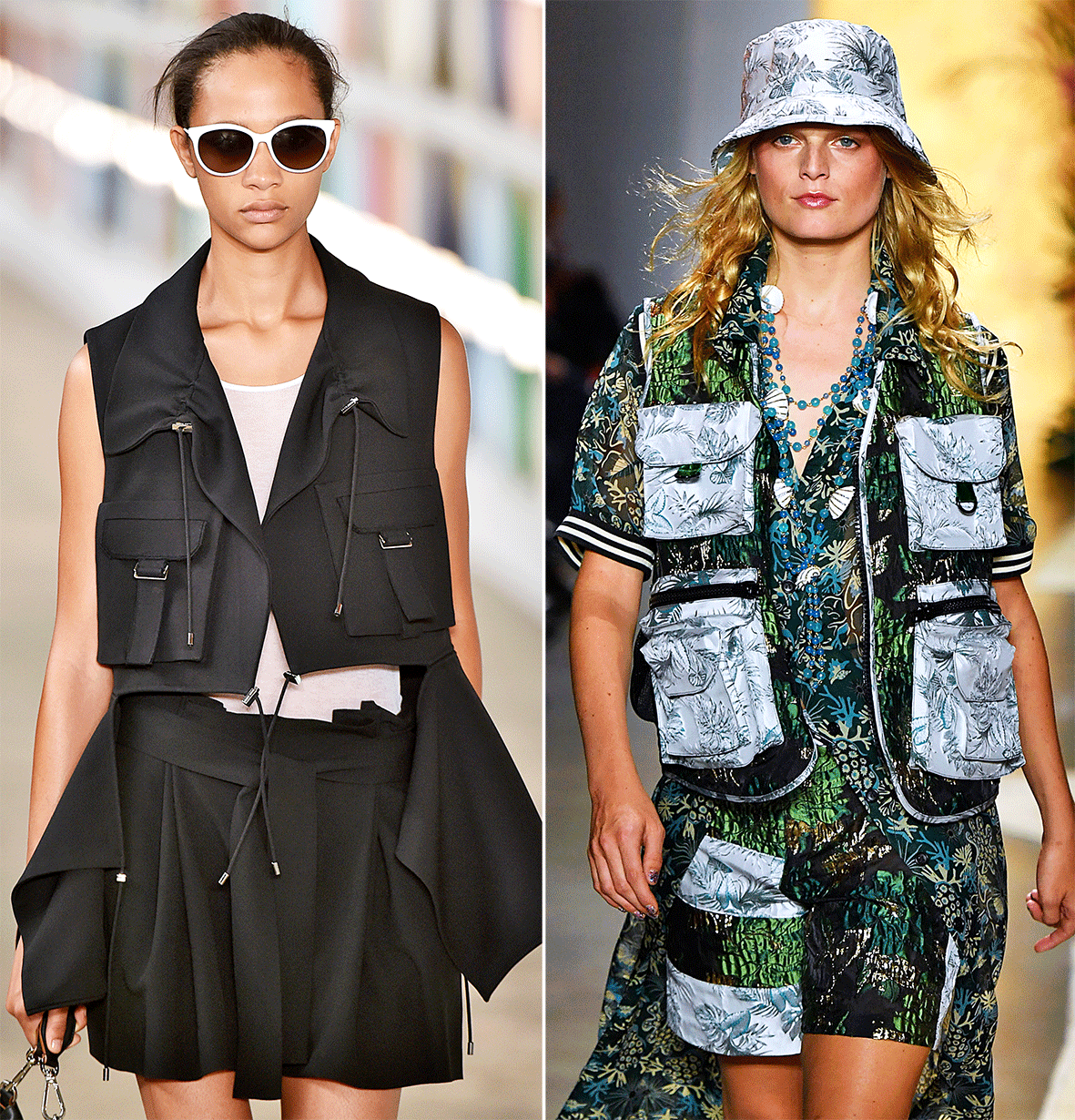
Instruction – Bellow Style Pocket
This pocket has a sporty character, is decorative and easy to sew. A quilted box pleat, a thread-straight strip of fabric attached around the shape of the bag and a flap make up the model.
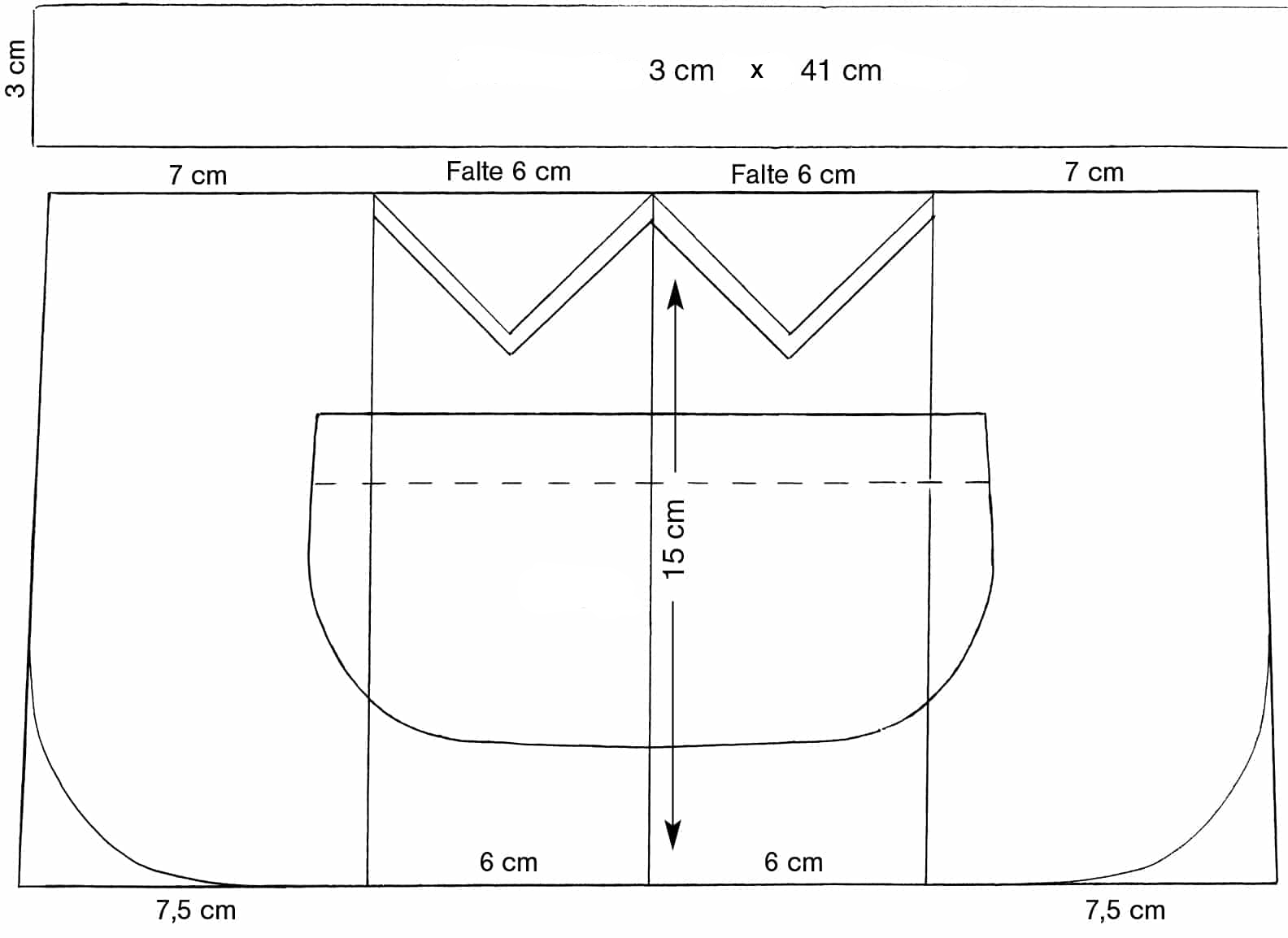
Constructing the pattern
Cut the pocket according to the drawing. The pattern is without flap and seam allowances.
Sewing instruction
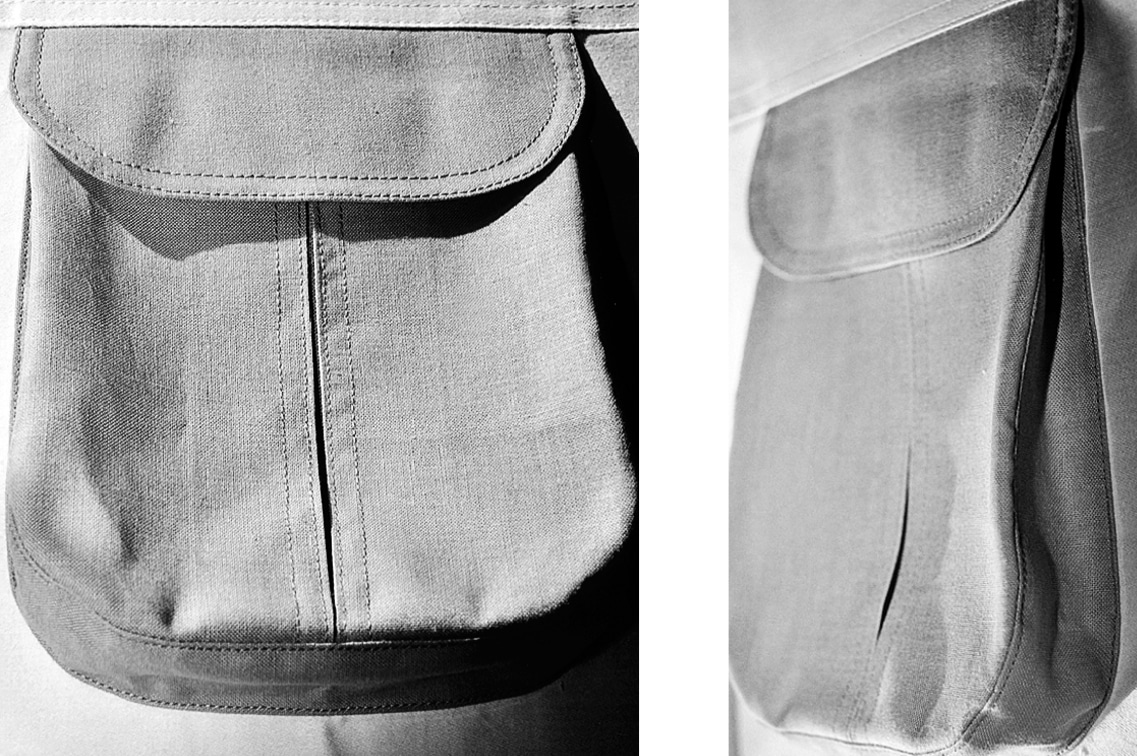
First the box pleat is ironed in and double stitched, then stitched on at the cover and cut back. The cover at the upper edge and the side strip are fixed with a light interlining. The length of the thread-straight cut strip extends to the upper fold edge and has 0.8 cm seam allowance at each side. Join pocket section and side strip together and topstitch the seam allowance in a narrow-edged fashion.
At the upper edge, place the side piece to form a pleat and sew the pleat contents together. The fold comes over it. This way the pocket is neatly closed on all sides. Press the side piece as wide as the seam (0.8 cm) and topstitch the bag in the shape shown. Cross-lock the top edge at the right and left side of the pocket approx. 0.5 cm wide. Secure the flap with a light interlining and topstitch with the same material in a folded position to match the box pleat. If the flap comes from a dividing seam, the sporty touch is attractively emphasised.


